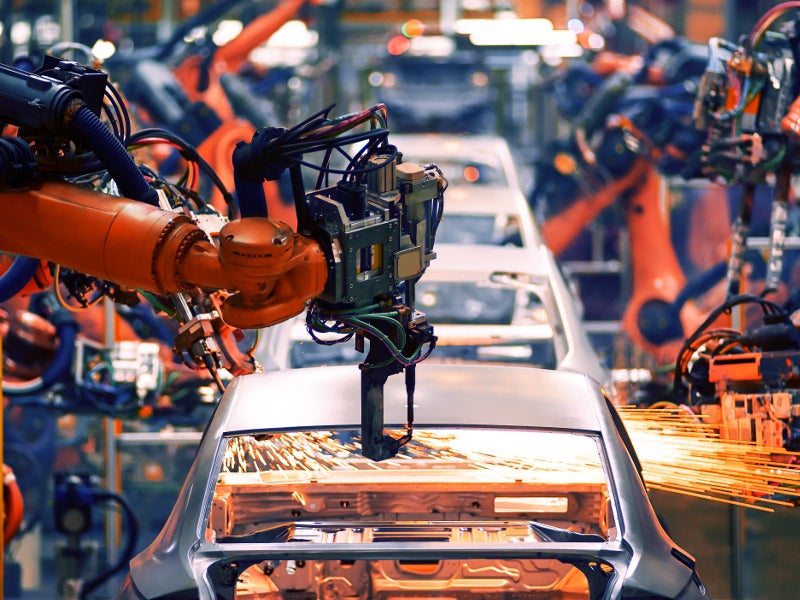
The Covid-19 pandemic could accelerate the use of cellular technologies to transform factories and other industrial site operations. These technologies, already in limited use, will be critical in automating some tasks and allowing others to be done remotely.
The Covid-19 global pandemic is already expected to transform society in fundamental and irrevocable ways that we can’t yet fully predict. One effect of this transformation may be to accelerate initiatives to deploy cellular network technologies, such as LTE and 5G, to fundamentally reorder industrial operations across a range of enterprise verticals. This trend is already underway, as businesses investigate wireless networks that provide more reliability, and lower latency, than WiFi. However, the sudden and severe disruption that Covid-19 has wrought could force near-term changes among enterprises that lead to lasting practices.
Opportunities for cellular technologies
- General Automation: Factories that were once filled with human employees are no longer safe working environments in a pandemic, forcing a sudden production halt for many companies. Factory and industrial-site managers will need to explore their options for using robots to revive production. Mobile robots, which can be helpful in moving parts and inventory, cannot practically be connected via cable, and WiFi best-effort connections aren’t reliable enough for this function; therefore, cellular technologies like LTE and 5G will be useful. Even stationary robots will benefit from wireless connections because – especially in the uncertain environment of a pandemic – factory managers will want the flexibility to reconfigure their production spaces quickly without having to re-route fiber or other cables.
- Remote Maintenance/Inspection: As human resources are stretched thin and employees are confined to their homes, more companies are likely to investigate wireless technologies to enable remote inspection of facilities and equipment. This concept is already being tested by the oil and gas industry, for example, in which drones are being used to remotely inspect pipelines, flare stacks, and other assets in places that are not easy for humans to reach. But in a pandemic, a common factory floor can become an inhospitable environment for humans, greatly expanding the need for drones.
- Public Safety/Smart Cities: As more government investment is devoted to ensuring the safety of citizens from the virus, having rich data on public activity and mobility will be greatly useful. We have already seen, to some extent, how useful existing cellular networks can be in providing that data; for example, mobile network data has been used to gauge how well people are adhering to social distancing. Going forward, some cities may want more tailored solutions that use mobile networks or wireless technologies to gain greater visibility into, and influence over, public activity.
Changes on the way
The Covid-19 pandemic will undoubtedly spark significant changes in society, government, and industry before it subsides as a public health threat. Once it does subside, some of the changes made during the pandemic period may fade away with it, but some will surely remain.
The use of cellular technologies ushered in by the virus is likely to be lasting because (a) it will educate industries on the value of these wireless solutions and (b) industries that made investments in these solutions will want to monetize the investments they made – and the lessons they learned – for as long as possible.
How well do you really know your competitors?
Access the most comprehensive Company Profiles on the market, powered by GlobalData. Save hours of research. Gain competitive edge.

Thank you!
Your download email will arrive shortly
Not ready to buy yet? Download a free sample
We are confident about the unique quality of our Company Profiles. However, we want you to make the most beneficial decision for your business, so we offer a free sample that you can download by submitting the below form
By GlobalData



